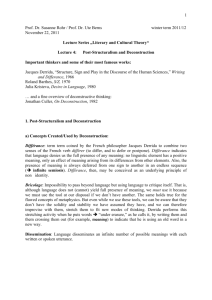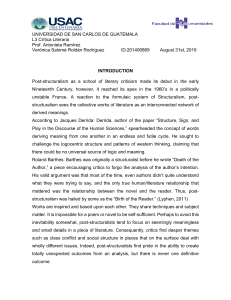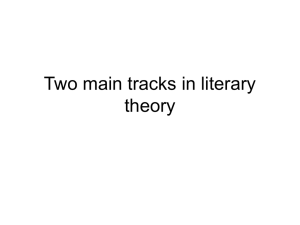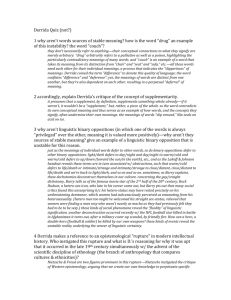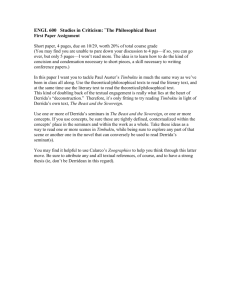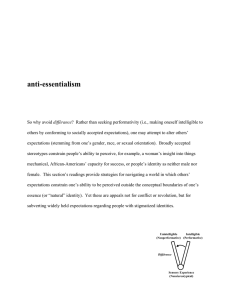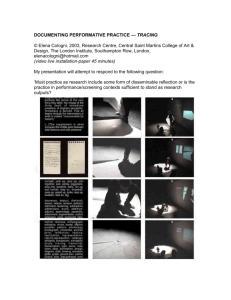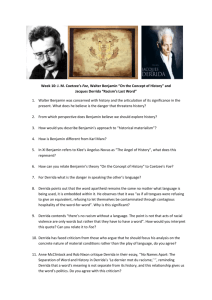quote from Stuart Hall on difference/différance
advertisement
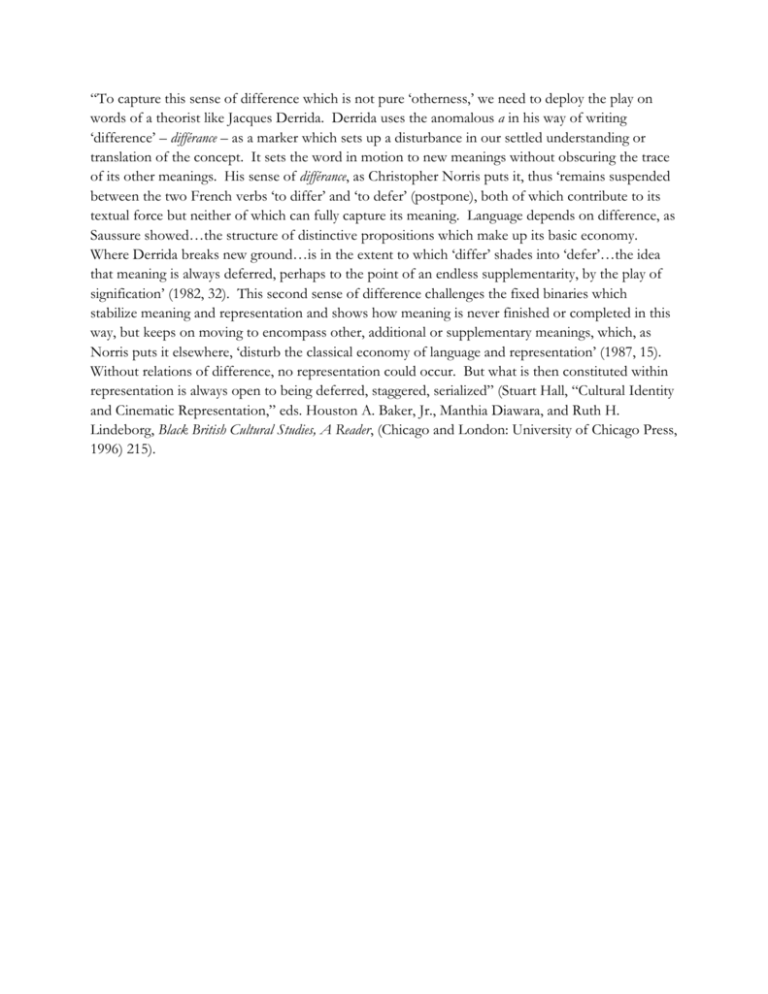
“To capture this sense of difference which is not pure ‘otherness,’ we need to deploy the play on words of a theorist like Jacques Derrida. Derrida uses the anomalous a in his way of writing ‘difference’ – différance – as a marker which sets up a disturbance in our settled understanding or translation of the concept. It sets the word in motion to new meanings without obscuring the trace of its other meanings. His sense of différance, as Christopher Norris puts it, thus ‘remains suspended between the two French verbs ‘to differ’ and ‘to defer’ (postpone), both of which contribute to its textual force but neither of which can fully capture its meaning. Language depends on difference, as Saussure showed…the structure of distinctive propositions which make up its basic economy. Where Derrida breaks new ground…is in the extent to which ‘differ’ shades into ‘defer’…the idea that meaning is always deferred, perhaps to the point of an endless supplementarity, by the play of signification’ (1982, 32). This second sense of difference challenges the fixed binaries which stabilize meaning and representation and shows how meaning is never finished or completed in this way, but keeps on moving to encompass other, additional or supplementary meanings, which, as Norris puts it elsewhere, ‘disturb the classical economy of language and representation’ (1987, 15). Without relations of difference, no representation could occur. But what is then constituted within representation is always open to being deferred, staggered, serialized” (Stuart Hall, “Cultural Identity and Cinematic Representation,” eds. Houston A. Baker, Jr., Manthia Diawara, and Ruth H. Lindeborg, Black British Cultural Studies, A Reader, (Chicago and London: University of Chicago Press, 1996) 215).
